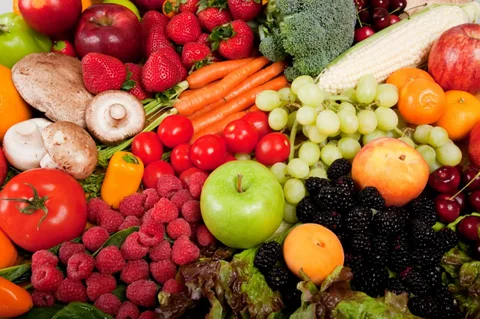Vitamin A is an essential nutrient crucial for maintaining vision, supporting immune function, and promoting cell growth. Ensuring you get enough vitamin A in your diet is important for overall health and well-being. This guide will explore various ways to increase your vitamin A intake through food, discussing the benefits, sources, and tips to maximize absorption.
Understanding Vitamin A
What is Vitamin A?
Vitamin A is a fat-soluble vitamin that exists in two primary forms: retinoids (found in animal products) and carotenoids (found in plant products). Retinoids include retinol, retinal, and retinoic acid, while carotenoids include beta-carotene, alpha-carotene, and beta-cryptoxanthin, which can be converted into retinoids in the body.
Benefits of Vitamin A
Vitamin A is vital for several bodily functions:
- Vision: It is essential for maintaining normal vision and preventing night blindness.
- Immune Function: It supports the immune system by maintaining the integrity of the skin and mucous membranes.
- Cell Growth: Vitamin A plays a crucial role in cell differentiation and growth.
- Reproduction: It is important for reproductive health in both males and females.
Recommended Daily Intake
The recommended daily intake (RDI) of vitamin A varies by age, gender, and life stage. For adults, the RDI is:
- Men: 900 micrograms (mcg) of retinol activity equivalents (RAE)
- Women: 700 mcg RAE
Top Food Sources of Vitamin A
Animal-Based Sources
Animal-based foods provide preformed vitamin A (retinoids), which the body can use directly. These sources are particularly rich in vitamin A:
Liver
Liver, especially beef liver, is one of the most concentrated sources of vitamin A. A single serving can provide more than the daily requirement.
Fish
Certain types of fish, such as salmon and mackerel, are good sources of vitamin A. Fish liver oils, like cod liver oil, are especially high in vitamin A.
Dairy Products
Dairy products, including milk, cheese, and yogurt, contain vitamin A. Fortified dairy products can also be a significant source.
Eggs
Eggs, particularly the yolks, are another excellent source of vitamin A.
Plant-Based Sources
Plant-based foods provide provitamin A carotenoids, which the body converts into active vitamin A. These sources are abundant and diverse:
Sweet Potatoes
Sweet potatoes are one of the richest sources of beta-carotene. A medium-sized sweet potato can provide more than 100% of the daily vitamin A requirement.
Carrots
Carrots are well-known for their high beta-carotene content. Eating them raw or cooked can significantly boost your vitamin A intake.
Leafy Greens
Dark leafy greens like spinach, kale, and collard greens are packed with beta-carotene.
Orange and Yellow Vegetables
Vegetables such as pumpkin, butternut squash, and bell peppers are excellent sources of beta-carotene.
Fruits
Fruits like mangoes, apricots, and cantaloupes are rich in beta-carotene and can contribute to your vitamin A intake.
Fortified Foods
Many foods, such as cereals and plant-based milk alternatives, are fortified with vitamin A, making it easier to meet your daily needs.
Tips for Maximizing Vitamin A Absorption
Pair with Healthy Fats
Vitamin A is fat-soluble, meaning it needs fat to be absorbed properly. Pair vitamin A-rich foods with healthy fats like avocados, nuts, seeds, or olive oil.
Cooking Methods
Cooking certain vegetables can increase the bioavailability of vitamin A. For example, cooking carrots and sweet potatoes can help the body better absorb beta-carotene.
Avoid Overcooking
While cooking can enhance absorption, overcooking can destroy some of the vitamin A content. Aim for steaming, sautéing, or lightly roasting to retain the most nutrients.
Balance Your Diet
A balanced diet that includes a variety of vitamin A sources ensures you get both retinoids and carotenoids, optimizing overall absorption and utilization.
Frequently Asked Questions
What are the signs of vitamin A deficiency?
Signs of vitamin A deficiency include night blindness, dry skin, frequent infections, and delayed growth in children.
Can you get too much vitamin A from food?
It’s rare to get too much vitamin A from food alone, but consuming very high amounts of animal-based sources like liver frequently could lead to toxicity.
Are there any side effects of too much vitamin A?
Excessive vitamin A intake can cause symptoms like nausea, dizziness, headaches, and in severe cases, liver damage and increased intracranial pressure.
How does vitamin A support vision health?
Vitamin A is a component of rhodopsin, a protein in the eyes that allows us to see in low-light conditions. It also helps maintain the health of the cornea and conjunctiva.
Are plant-based sources of vitamin A as effective as animal-based sources?
Plant-based sources provide provitamin A carotenoids, which need to be converted into active vitamin A in the body. While effective, the conversion rate can vary based on individual health and dietary factors.
Can vitamin A help improve skin health?
Yes, vitamin A supports skin health by promoting cell turnover and reducing inflammation. It is commonly used in topical treatments for acne and other skin conditions.
How does cooking affect the vitamin A content in foods?
Cooking can enhance the bioavailability of beta-carotene in vegetables but can also destroy some of the vitamin A content if overcooked. Light cooking methods like steaming or sautéing are recommended.
Is it better to get vitamin A from food or supplements?
Getting vitamin A from food is generally preferred because it provides a balanced intake of nutrients and reduces the risk of toxicity associated with high-dose supplements.
Can vegetarians get enough vitamin A from their diet?
Yes, vegetarians can get sufficient vitamin A by consuming a variety of carotenoid-rich fruits and vegetables, such as carrots, sweet potatoes, and leafy greens.
What role does vitamin A play in immune function?
Vitamin A supports the immune system by maintaining the integrity of the skin and mucous membranes, which act as barriers against infections. It also helps regulate the function of white blood cells.
Conclusion
Ensuring adequate vitamin A intake is crucial for maintaining overall health, particularly for vision, immune function, and cell growth. By incorporating a variety of vitamin A-rich foods into your diet, both from animal and plant sources, you can easily meet your daily requirements. Remember to pair these foods with healthy fats and use appropriate cooking methods to maximize absorption. With these strategies, you can enjoy the numerous health benefits that vitamin A offers.
- What Not To Do Before Lip Filler - May 31, 2025
- Understanding Breadcrumbing And Its Impact On Modern Relationships - May 31, 2025
- Neck Line Filler Treatment Near Shalford, Surrey - May 30, 2025

